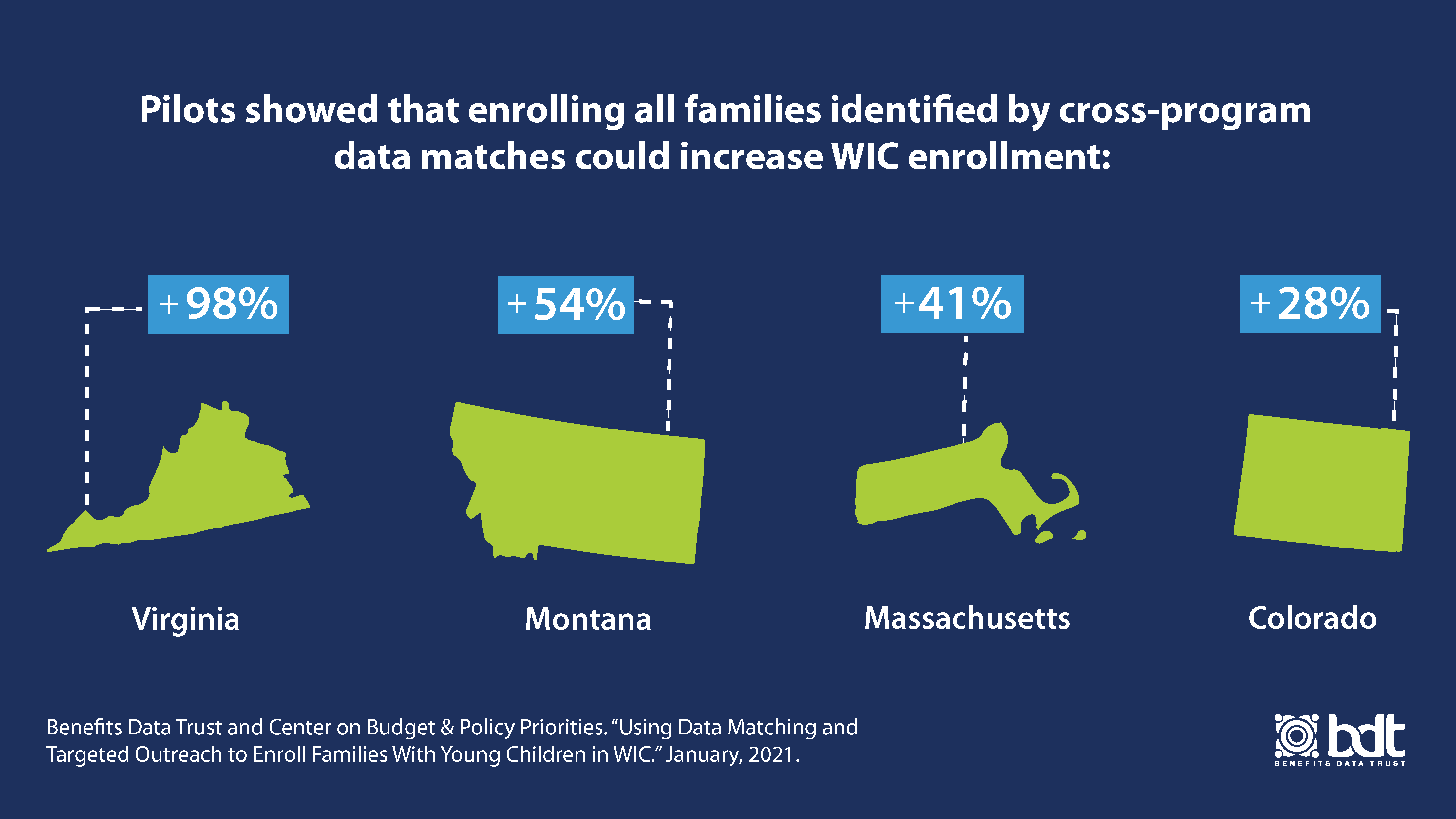Over the past decade, a declining share of eligible families have participated in the Special Supplemental Nutrition Program for Women, Infants, and Children (WIC), despite the program's well-documented dietary, health, and developmental benefits. It’s our mission to change that.
BDT’s latest report, in partnership with the Center on Budget and Policy Priorities (CBPP), shows how harnessing data and tech can help to develop strategies for closing participation gaps, giving more families the opportunity to access the improved nutritional outcomes that WIC offers.
The report is based on pilots we jointly conducted in four states — Colorado, Massachusetts, Montana, and Virginia — with the goal of answering two critical research questions:
- What is the adjunctively eligible participation gap? That is, how many families receive benefits that make them eligible for WIC and yet are not enrolled?
- What is the impact of targeted, text message-based outreach? Does it increase WIC enrollment for these families?

But our work doesn’t stop there; In continued partnership with CBPP, we are building on the work of these pilots by leading a series of workshops on leveraging Medicaid and SNAP data for targeted WIC outreach. The seven states participating in this series are receiving guidance and exchanging tips to develop actionable plans for developing data sharing agreements, conducting data matches, following up with data-driven targeted outreach, measuring outcomes, and strengthening cross-program partnerships.
To learn more about our recent findings and how data matching and targeted outreach can boost participation in the WIC program, read the report here.
This report was made possible through collaboration with the Center on Budget and Policy Priorities (CBPP) as well as support from the Walmart Foundation. The findings, conclusions and recommendations presented in this report are those of Benefits Data Trust and CBPP alone, and do not necessarily reflect the opinions of the Walmart Foundation.
